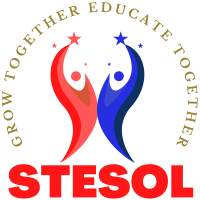Special | A | B | C | D | E | F | G | H | I | J | K | L | M | N | O | P | Q | R | S | T | U | V | W | X | Y | Z | ALL
P |
|---|
| NN | Participatory action research | ||
|---|---|---|---|
Participatory action research is an approach to research in communities that emphasizes participation and action. It seeks to understand the world by trying to change it, collaboratively and following reflection. It emphasizes collective inquiry and experimentation grounded in experience and social history. | |||
| NQ | Participatory Action Research | ||
|---|---|---|---|
Participatory Action Research involves individuals which are called stakeholders. These individuals function as equal partners. The subject and the researchers find way to bring about social change and improve their lives. Stakeholders may not be involved at the beginning of the research but become active early in the process and jointly plan the study.
| |||
| VL | Participatory Action Research | |||
|---|---|---|---|---|
Participatory action research (PAR) is an approach to research in communities that emphasizes participation and action. It seeks to understand the world by trying to change it, collaboratively and following reflection. PAR emphasizes collective inquiry and experimentation grounded in experience and social history. Within a PAR process, "communities of inquiry and action evolve and address questions and issues that are significant for those who participate as co-researchers" (Reason and Bradbury, 2008, p. 1). PAR contrasts with many research methods, which emphasize disinterested researchers and reproducibility of findings. | ||||
| NH | Participatory Action Research | ||
|---|---|---|---|
Participatory Action Research seeks to understand and improve the world by changing it. At its heart is collective, self reflective inquiry that researchers and participants undertake, so they can understand and improve upon the practices in which they participate and the situations in which they find themselves. The reflective process is directly linked to action, influenced by understanding of history, culture, and local context and embedded in social relationships. The process of PAR should be empowering and lead to people having increased control over their lives. | |||
| TT | Participatory Action Research | ||
|---|---|---|---|
A participatory, democratic process concerned with developing practical knowing in the pursuit of worthwhile human purposes, grounded in a participatory worldview….[and bringing] together action and reflection, theory and practice, in participation with others in the pursuit of practical solutions to issues of pressing concern to people, and more generally the flourishing of individual persons and communities. (Reason & Bradbury, 2001) | |||
| HN | Participatory action research | ||
|---|---|---|---|
Participatory action research (PAR) differs from most other approaches to public health research because it is based on reflection, data collection, and action that aims to improve health and reduce health inequities through involving the people who, in turn, take actions to improve their own health. | |||
| TP | Participatory Action Research | ||
|---|---|---|---|
Participatory Action Research is about jointly producing knowledge with others to produce critical interpretations and readings of the world, which are accessible, understandable to all those involved and actionable. | |||
| TQ | Participatory Action Research | ||
|---|---|---|---|
Participatory action research (PAR) is an approach to research in communities that emphasizes participation and action. It seeks to understand the world by trying to change it, collaboratively and following reflection. PAR emphasizes collective inquiry and experimentation grounded in experience and social history. Within a PAR process, "communities of inquiry and action evolve and address questions and issues that are significant for those who participate as co-researchers" (Reason and Bradbury, 2008, p. 1). | |||
| VN | Participatory Action Research | ||
|---|---|---|---|
Participatory action research is a form of action research in which professional social researchers operate as full collaborators with members of organizations in studying and transforming those organizations. It is an ongoing organizational learning process, a research approach that emphasizes co-learning, participation and organizational transformation. (Greenwood et al, 1993). | |||
